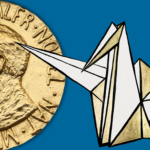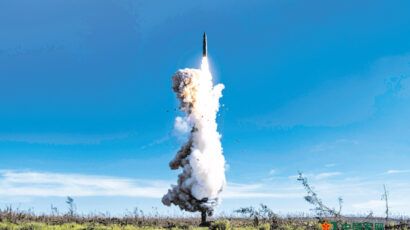A necessary evil
By Kingston Reif | January 22, 2014
On January 20, the provisions of a historic nuclear agreement between Iran and six powers took effect. Reached last November in Geneva, the deal between the P5+1—the United States, China, Russia, Great Britain, France, and Germany—and the Islamic Republic is intended to be a first step towards a more comprehensive agreement that will ensure Iran cannot develop nuclear weapons.
If successfully implemented, the November deal—which eases sanctions on Tehran to the tune of an estimated $7 billion in relief—would verifiably freeze Iran’s nuclear program and begin to roll back its most proliferation-susceptible features, providing breathing room to negotiate a final settlement. After years of diplomatic stalemate and unconstrained Iranian nuclear progress, many former US government and military officials from both political parties have praised the Geneva deal as an important step in the right direction.
Skeptics in the United States and Israel, though, argue that the current negotiations, set to resume in February, are headed the wrong way. While P5+1 leaders envision a final deal that “would involve a mutually defined [Iranian] enrichment program”—producing material that could be used to make both nuclear energy and weapons—the doubters say that Iran must fully dismantle its ability to enrich.
They put forward two main arguments. Allowing Tehran to retain even a limited ability to make nuclear fuel would leave a rogue regime too close to the bomb, they say. They also argue that any deal that doesn’t prohibit Iranian enrichment would undermine US efforts to stem the practice in other countries, in part by making it harder to negotiate bilateral “gold standard” no-proliferation agreements on civilian nuclear power.
Neither of the critics’ arguments, though, is a good reason to oppose the diplomatic process with Iran.
Make the deal that’s possible. A final deal prohibiting all uranium enrichment would be ideal, but it’s not a realistic option. The choice is not between the Geneva pact and a perfect agreement under which Iran permanently suspends all enrichment. Tehran has made it abundantly clear that zero enrichment is a non-starter. It has invested far too much in its program to turn back now. Rather, the choice is between the Geneva agreement and a status quo in which there are no constraints on Iran’s ability to produce weapons-usable nuclear material without detection.
That’s why the Obama administration’s approach is the right one. A realistic final-stage agreement would significantly constrain Iran’s enrichment program, greatly increase the international community’s ability to monitor and verify compliance, and give the United States and its allies ample warning in the event that Iran made a “dash” to acquire the bomb.
Insisting on zero enrichment at the outset, on the other hand, would likely doom diplomatic efforts, thereby increasing the likelihood of unconstrained Iranian nuclear development, a nuclear-armed Iran, a US war against Iran, or all of the above—and not necessarily in that order.
False fears. Concern that an agreement allowing some Iranian enrichment will make it more difficult to stem the practice elsewhere is likewise overblown.
Iran has been expanding its capacity to enrich uranium for nearly a decade. It is hard to believe that a deal that not only stops this progress, but puts Tehran farther away from a nuclear weapon than at any time since it began, would suddenly make other states want to pursue enrichment any more than they would if the Iranian program continued unchecked.
It is also important to remember that while existing UN Security Council resolutions on Iran do call for a “full and sustained suspension” of enrichment, they do not require it to permanently forgo the practice. The Geneva agreement effectively accomplishes the goal of those resolutions, capping the total amount of low-enriched (3.5 percent) uranium in Iran’s possession, plus requiring it to neutralize its 20-percent-enriched uranium (which is closer to weapon-grade) and cease all enrichment to 20-percent levels.
In other words, any claim that a final deal leaving Iran with a limited ability to enrich uranium will upset the global nonproliferation applecart is misplaced. Tehran’s ability to do so is currently unlimited, and there is little evidence that passing more sanctions or conducting military strikes would be more effective at curtailing the program.
No 123 for Iran. The critics have also suggested that any Iran deal that allows enrichment will hamstring efforts to conclude deals with other countries that include the toughest nonproliferation conditions. One way Washington seeks to promote both nonproliferation and the peaceful use of nuclear energy is through bilateral civilian nuclear cooperation agreements. Under these deals (sometimes called “123 agreements”), the United States provides other countries with civilian nuclear assistance so long as they meet certain nonproliferation criteria.
While it is the Obama administration’s policy to encourage high nonproliferation standards under 123 agreements, neither it nor US law require every such deal to include a legally binding prohibition on enrichment and reprocessing. For example, the United States recently signed an agreement with Vietnam that does not contain a legally binding no-enrichment-or-reprocessing pledge, but according to press reports, Vietnam made a political pledge instead.
Seeking to prohibit any future enrichment and reprocessing programs when negotiating cooperation agreements with countries that do not already have these capabilities can be a useful complement to other tools, as demonstrated by recent deals with the United Arab Emirates and Taiwan. Bipartisan efforts in Congress to strengthen oversight of 123 agreements—by fast-tracking deals in which partner countries agree to forgo enrichment and reprocessing—would strengthen US diplomats’ hands, and give states another incentive not to follow Iran’s path and make nuclear fuel.
But can Washington continue to ask its nuclear cooperation partners not to make their own enriched fuel if it cuts a deal allowing Iran to do so?
Sure. The United States is not negotiating an agreement on nuclear cooperation with Iran, and there is no prospect of it doing so for the foreseeable future. Countries like Saudi Arabia and South Korea, which have to date been blocked from enrichment of US-origin material, may bristle to see that Iran is not similarly obstructed. But they seek the assistance and recognition that comes with a 123 agreement, which are not on the table with Iran.
Moreover, what Saudi Arabia, South Korea, and many other US allies really want is greater confidence in the US commitment to their security. They want the United States to protect its allies and keep other countries in their regions from building nuclear weapons. A comprehensive nuclear agreement with Iran can promote regional security without barring all Iranian uranium enrichment, if its limits are significant and its verification measures are strong.
If the P5+1 and Iran reach a good agreement, and the United States attends to the security concerns of its allies, Tehran can be turned around in its course towards a nuclear weapon, buttressing nonproliferation worldwide.
Insisting on the unattainable goal of zero enrichment, however, risks killing diplomacy and perhaps the last, best hope of constraining Iran’s nuclear program. This would strike a much larger blow to the global nonproliferation regime than the alternative of negotiated limits. Talk about a bad deal.
Together, we make the world safer.
The Bulletin elevates expert voices above the noise. But as an independent nonprofit organization, our operations depend on the support of readers like you. Help us continue to deliver quality journalism that holds leaders accountable. Your support of our work at any level is important. In return, we promise our coverage will be understandable, influential, vigilant, solution-oriented, and fair-minded. Together we can make a difference.
Topics: Columnists, Nuclear Energy, Nuclear Weapons















